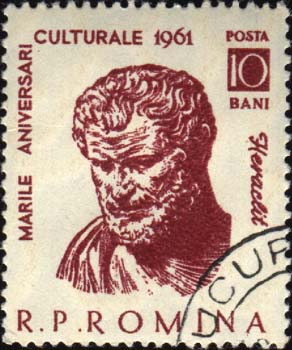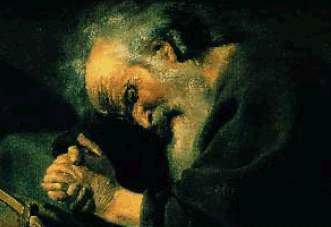|
|
The river flow sustains, yet the same water never remains. Bubbles float on the stream; some are dissipated, some are generated, and none can be stationary. Kamo no Tyômei, Hôzyôki Parmenides has a complete different opinion: There remains, then, but one word by which to express the [true] road: Is. And on this road there are many signs that What Is has no beginning and never will be destroyed: it is whole, still, and without end. It neither was nor will be, it simply is—now, altogether, one, continuous…
Heraclitus is interested only in the knowledge of grandiose wisdom and not in details, the learning of many things, like Albert Einstein: “I want to know how God created this world. I am not interested in this or that phenomenon, in the spectrum of this or that element. I want to know His thoughts; the rest are details.” But Heraclitus says also “For it is very well necessary, that those who love wisdom investigate many things” that probably says that the understanding of the “kosmos” requires to investigate many things (probably its parts). φύσις δὲ καθ' Ἡράκλειτον κρύπτεσθαι φιλεῖ , Nature loves to conceal herself. Various interpretations for example what is the meaning of φύσις ? (Diels , Gigon , Heidegger, etc) In his later years, Heraclitus developed a medical condition known as edema, in which the body suffers from a buildup of excess fluid. Having no faith in practiced physicians, to which he felt intellectually superior, Heraclitus attempted to cure himself in the most bizarre way. He buried himself in a cow stall hoping that the heat from the decaying manure would evaporate his body’s excess water. It did not, and the philosopher died buried up to his neck in cow dung. Tom E. Morris. The Philosophy of Science QUOTATIONS All dilemmas can be solved by unifying the contraries, Constantin Brâncusi (1876-1957) Romanian Sculptor ( |

